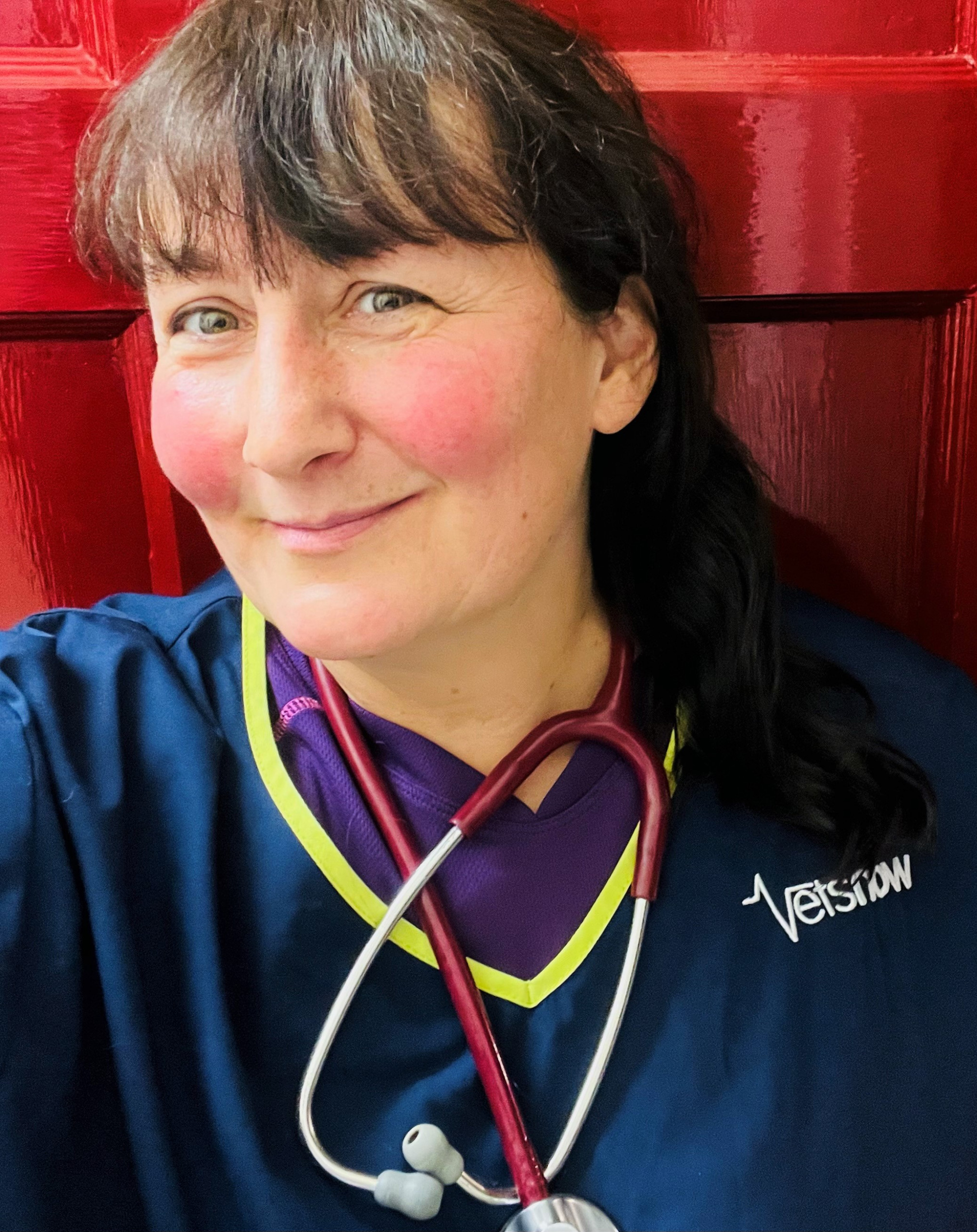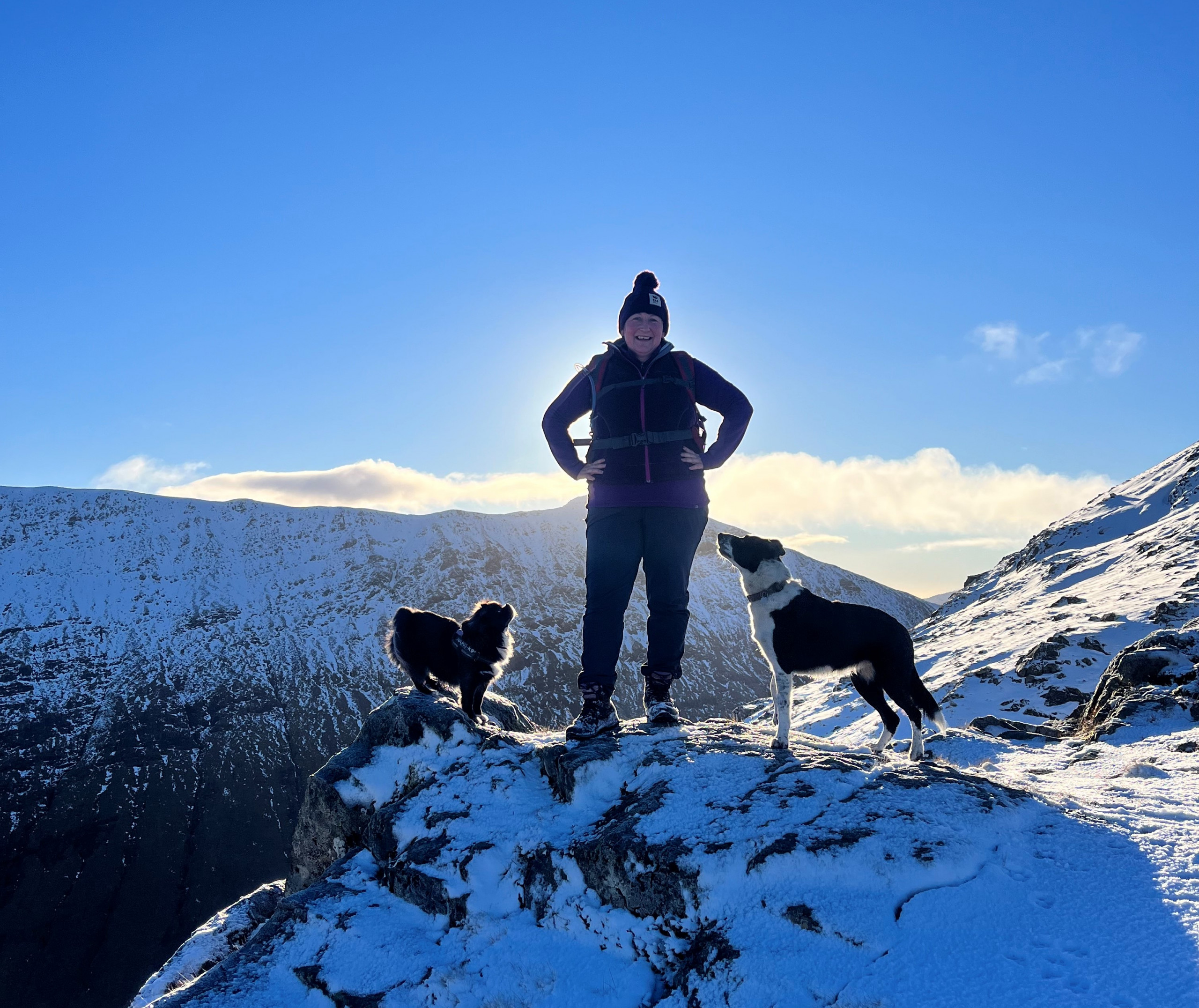Siobhan Casey took a bit of a scenic route to vet emergency care—swapping pharmacy for the fast-paced world of ECC. With a rich background, including a stint at the PDSA, she eventually found her calling at Vets Now. Diving into Vets Now’s AdvantEdge program, she leveled up her skills in ultrasound and tackled overnight emergencies head-on.
We caught up with Siobhan to learn more about shifting gears into ECC.
Tell us a little about your career so far.
I always wanted to become a vet but didn’t have the grades when I initially went to uni. My first degree was in pharmacy – which was fine, but it wasn’t a passion. I got the opportunity then to do my second veterinary degree, and it’s been great.
I initially qualified in 2007 at the University of Glasgow, so I’ve been a vet for sixteen years now. My career was a real mixed bag: first cows and sheep in rural practice, which was great, and then I was with PDSA for five years, which was great fun and a real learning experience. I saw a lot and learned so much.
And then I moved to a daytime practice, which ended up getting sold. After the initial independent practitioner left, I became clinical director there, and eventually was managing a bi g practice with four different branches. I was there five years, but negotiating covid – managing all the staff, clients, corporate – it got quite stressful, and I felt I couldn’t be a vet as much.
So I handed in my notice and planned to locum for a while. That led me to Vets Now Kilmarnock, which I really enjoyed.
What have you liked about emergency and critical care?
I like that it’s quite a small team, completely different to a hospital.
Usually one vet, one nurse mainly – with an ACA sometimes – but you’d have to deal with whatever comes through the door. It doesn’t faze me, because I’m quite experienced, but it keeps things interesting.
When did you do AdvantEdge?
I didn’t realise initially it was part of Vets Now, though I knew they had Cutting Edge for new vets. It was mentioned to me while I was first interviewing and onboarding, and I thought it was a great idea.
I ended up going through the programme after I’d been at the clinic for six months, which I thought was actually a good way to do it.
Why is that?
You have some context then for the work and you know what it’s actually like in the clinic, so it’s not as potentially intimidating as it might be if you’re going into ECC for the first time.
You have a better sense of how much certain things might come up and which knowledge will be most applicable.

Siobhan CaseyAdvantEdge helps build that confidence with ECC which is a real benefit
If you had to pick one main takeaway message from the training, what would that be?
One key takeaway has been the usefulness of ultrasounds! When I first started practicing, I’d say we didn’t use ultrasounds that much, so I wouldn’t say I was a wizard. I mean, I could put the scanner on, see masses, fluids, that kind of thing, but I’d never really used it in the point of care ultrasound scan situation.
Peer support is an important part of the programme. Do you keep in touch with your AdvantEdge cohort?
Yes, we have an online chat, and we’ll post something if we’ve got something interesting. Or like something specific – an operational question, or a ‘has anybody ever seen a…?’. And definitely, if I’m in the area I’ll meet up with people from my cohort. I think we’re due a reunion soon!
In your case, you were working at your clinic for a few months before doing AdvantEdge. Did you notice it changed your approach to work at all?
It was useful to get a sense of how Vets Now would like us to manage cases. I have a lot of experience in the charity sector, and your approach could vary depending on resource constraints.
What do you enjoy most about emergency practice?
You never know what’s going to walk in the door! No two nights are the same, so it is really, really interesting.
And how are your finding adjusting to night work and work-life balance?
It’s definitely a better work life balance. I do two long night shifts a week, so that’s my 30 hours and I’m done, as I’m part-time. I’ve got a little boy, and right now he’s in school, so I’ve got the daytime to clean, get my jobs done, sort out the dogs, and then go pick up my son.
And I’m used to being on-call at nights, so that’s not too much of an adjustment. The biggest issue is figuring out how meals should work when you’re working nights!
Would you recommend AdvantEdge to other vets interested in emergency practice, and why?
I personally would. Of course, it depends what kind of experience you’ve had, and I do think it’s useful to have some general practice experience just so you have a sense of what you might be dealing with. And then AdvantEdge helps build that confidence with ECC which is a real benefit.
AdvantEdge was a very intense two weeks, as I hadn’t been in that study mode for a while, but it was a great experience.

Siobhan CaseyAdvantEdge was a very intense two weeks, as I hadn’t been in that study mode for a while, but it was a great experience.
Have you had any interesting cases lately?
We’re getting loads of mycotoxin cases lately, from dogs eating mouldy food. It’s really gratifying, as the pets often come in really poorly, just shaking and seizing, and we’re generally able to get them turned around quite quickly, and the owners are so grateful.
We had one the other night, and the dog had been raiding the bin in the teenager’s room. When we told the owners that we suspected mouldy food, they sort of sighed and said, ‘That wouldn’t surprise us’.
